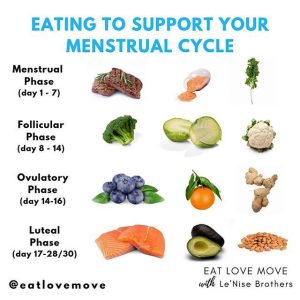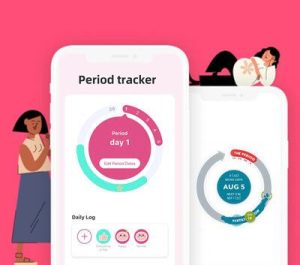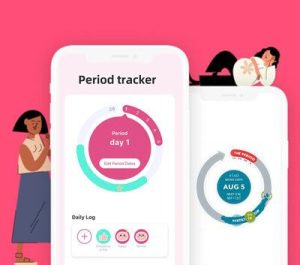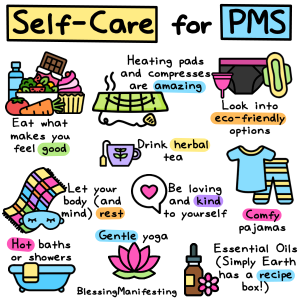Managing Premenstrual Syndrome (PMS): Self-Care Strategies
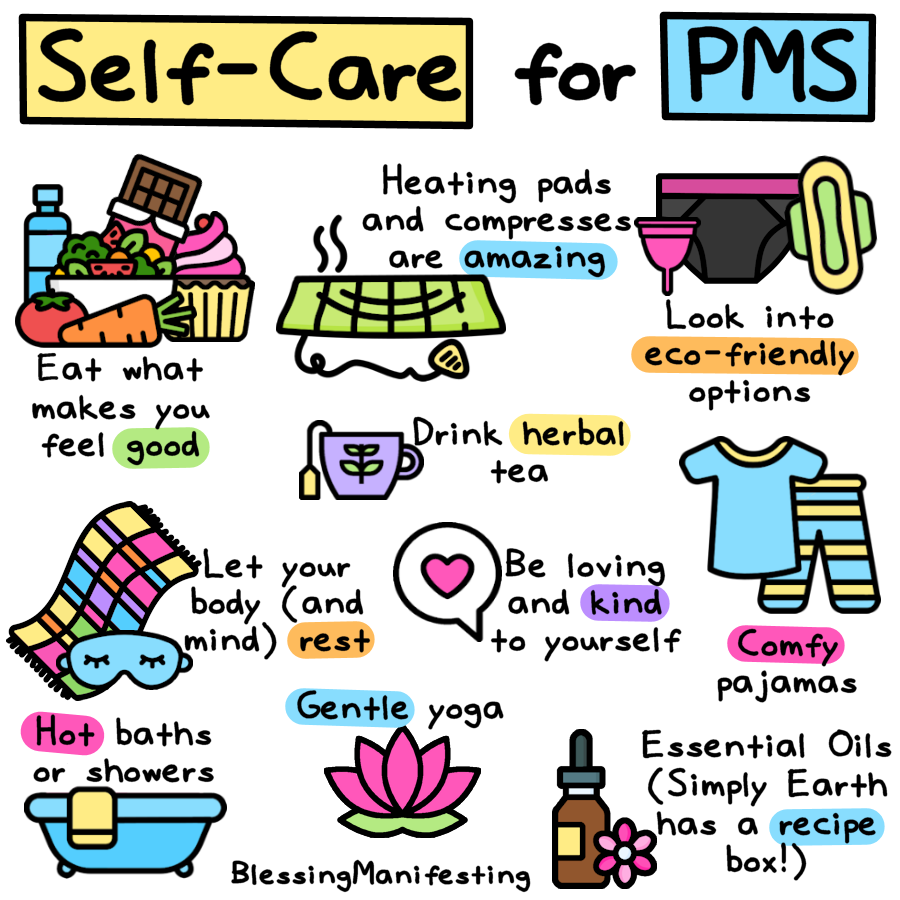
Dealing with premenstrual syndrome (PMS) can be a challenging experience for many women. The hormonal changes that occur during the menstrual cycle can lead to a variety of physical and emotional symptoms, including bloating, mood swings, fatigue, and irritability. While PMS is a common condition, there are ways to manage its symptoms and improve your overall well-being. In this article, we’ll discuss some self-care strategies that can help you better cope with PMS.
1. Maintain a Healthy Diet
One of the most effective ways to manage PMS symptoms is to maintain a healthy diet. Avoiding foods that are high in salt, sugar, and caffeine can help reduce bloating and mood swings. Instead, focus on eating a balanced diet rich in fruits, vegetables, whole grains, and lean proteins. Certain nutrients, such as calcium, magnesium, and vitamin B6, have been shown to help alleviate PMS symptoms.
2. Exercise Regularly
Regular exercise can also help alleviate PMS symptoms. Physical activity releases endorphins, which are natural mood-boosting chemicals that can help reduce stress and improve your overall well-being. Aim for at least 30 minutes of moderate exercise most days of the week, such as walking, jogging, biking, or yoga.
3. Get Plenty of Rest
Getting enough sleep is crucial for managing PMS symptoms. Aim for 7-9 hours of quality sleep each night to help reduce fatigue and irritability. Establishing a bedtime routine, such as turning off electronics an hour before bed and practicing relaxation techniques, can help you get the rest you need.
4. Practice Stress Management Techniques
Stress can exacerbate PMS symptoms, so it’s important to find healthy ways to manage stress in your life. Techniques such as deep breathing, meditation, yoga, and journaling can help you relax and reduce anxiety. Taking time for yourself and engaging in activities you enjoy can also help alleviate stress.
5. Consider Dietary Supplements
Sometimes, dietary supplements can help manage PMS symptoms. Certain supplements, such as calcium, magnesium, vitamin B6, and evening primrose oil, have been shown to alleviate symptoms like bloating, irritability, and breast tenderness. However, it’s important to talk to your healthcare provider before starting any new supplement regimen.
6. Stay Hydrated
Drinking plenty of water is essential for overall health and can help alleviate PMS symptoms like bloating and fatigue. Aim to drink at least eight glasses of water a day, and consider reducing your intake of sugary beverages and caffeine, which can exacerbate symptoms like irritability and mood swings.
7. Seek Professional Help If Needed
If you’re struggling to manage severe PMS symptoms, it’s important to seek help from a healthcare provider. They can help diagnose your condition and recommend appropriate treatments, such as medication or therapy, to help alleviate your symptoms. Don’t hesitate to reach out for support if you need it.
Overall, managing PMS symptoms requires a combination of self-care strategies, including maintaining a healthy diet, exercising regularly, getting enough rest, practicing stress management techniques, considering dietary supplements, staying hydrated, and seeking professional help if needed. By incorporating these strategies into your daily routine, you can better cope with PMS and improve your overall well-being.
Remember that every woman is different, and what works for one person may not work for another. It may take some trial and error to find the self-care strategies that work best for you. Be patient with yourself and give yourself grace as you navigate the challenges of managing PMS. With time and effort, you can find ways to alleviate your symptoms and improve your quality of life.
